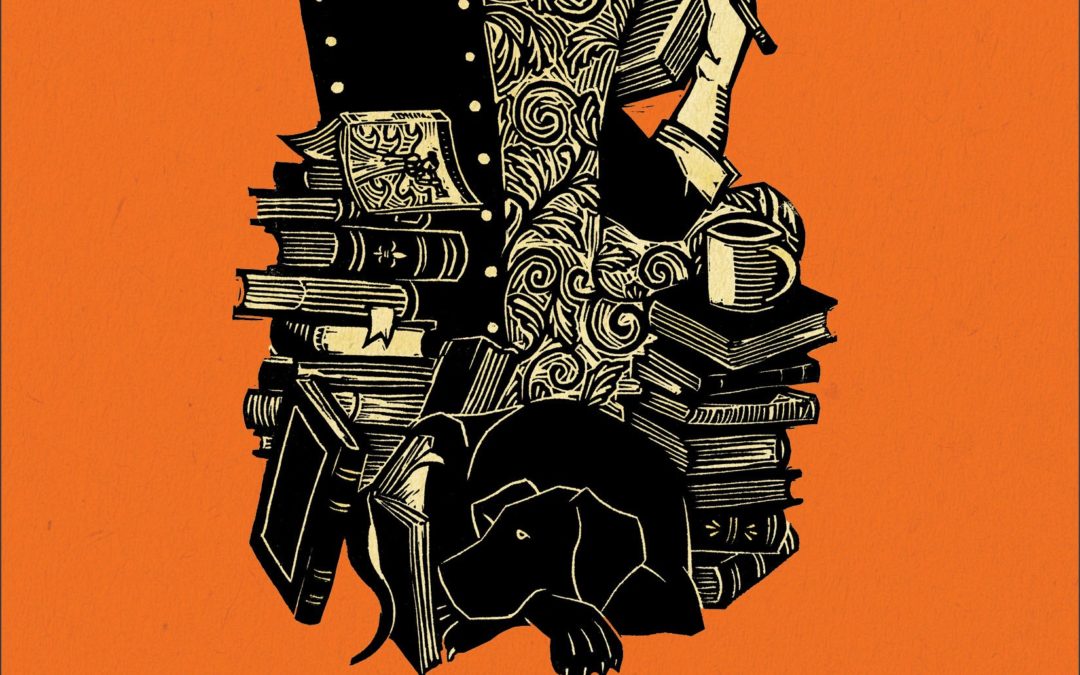On Reading Well:
Finding the Good Life Through Great Books
by Karen Swallow Prior
–Review by Teri Hyrkas
Do you like to start the New Year with a consequential book? If so, allow me to recommend a title that I think would be a worthy choice for 2019 — On Reading Well: Finding the Good Life Through Great Books (Brazos Press, 2018). A book about virtues, this recent release by Karen Swallow Prior is a marvelous commentary on how great novels can demonstrate what it means to recognize and pursue the abundant life, and contrarily, how literature enables us to vicariously experience the trials of someone whose life is less than virtuous.
On Reading Well offers descriptions of thirteen works of literary fiction that illustrate twelve different virtues. All of the featured virtues are applicable to daily life and, as Prior explains, even reading, if one chooses to read well, is virtuous. “[While] reading for virtue means, in part, reading about virtue, in a deeper, less obvious way, reading literature is a way to practice virtue.” Prior tells us that the definition of virtue is many layered, “… but in general, virtue can most simply be understood as excellence. Reading well is, in itself, an act of excellence, and it is also a habit that cultivates more virtue in return.”
Two suggestions as you begin On Reading Well:
- Don’t skip the foreword written by respected Professor of English Emeritus at Wheaton College Leland Ryken. It is brief, gives a very helpful explanation of the history of literary criticism, and for those who are aspiring wordsmiths, it is a shining example of excellent writing.
- Be sure to read KSP’s introduction which skillfully sets the stage for the body of the book and absolutely begs to be underlined. Happily, Prior encourages the reader to do just that. Prior advocates for the use of pens, pencils, and highlighters as aids to reading well. “The idea that books should not be written in is an unfortunate holdover from grade school, a canard rooted in a misunderstanding of what makes a book valuable.” So keep a pen close by as you spend time in On Reading Well, and know that you have the author’s blessing to write in her book.
The twelve virtues that Prior includes in On Reading Well are prudence, temperance, justice, courage, faith, hope, love, chastity, patience, kindness, and humility. Each virtue is paired with a book that serves as the landscape for the discussion. Some virtue/book chapters would appear to be obvious matches, as with justice and A Tale of Two Cities by Charles Dickens, but an obvious match does not mean that the content of the chapter is either humdrum or predictable. Prior’s commentary is full of surprising observations about human nature, contains thoughtful word twists, and applies unexpected emphases which challenge and entice the reader.
Other virtue/book sections in On Reading Well would seem to be at complete odds with each other. For instance, the virtue of hope is paired with the apocalyptic book by Cormac McCarthy, The Road. Prior’s skill in bringing these two opposites together is masterful. The author describes The Road as a secular rather than a religious apocalypse, “the simple, but harrowing, story of a father and son who are wayfarers in a postapocalyptic world bereft of nearly all life.” In The Road, there are not many people left on the land and due to cannibalism, even those who remain are not to be trusted. A great portion of the terrain the two characters must cover is scorched by fire which makes even the most basic necessities hard to find and dangerous to obtain.
As the account of the travelers in The Road is told, the reader takes in the difficulty of the situation not only through the storyline but also through the style of the narrative. The book contains no chapters and has only a few breaks which, Prior says, emphasizes the arduous course of their journey. The punctuation is kept to a minimum, and neither the father nor the son have names; this reflects the desolate, depersonalizing terrain the characters inhabit. Prior continues: “Such a place seems unlikely to cultivate hope. But sometimes in circumstances that seem most hopeless, hope is by necessity strengthened. Reading the story itself is an exercise in hope…”
Beautifully situated within this bleak landscape of The Road is Prior’s development of the meaning of hope. Hope as a passion and a virtue; the decision to choose hope as opposed to hopelessness; natural hope; hope within a theological context, and the bridge that can be built between natural, human hope and God-filled hope. All of the virtues in the various chapters in On Reading Well receive the same rich treatment as their many layers of meaning are displayed against and within the structure and content of great books.
In the introduction, Prior uses a phrase from Sir Philip Sidney, “figuring forth,” which speaks of the power of literary language to portend “good things.”[1] Prior says, ” ‘Figuring forth’ refers to the use of the imagination, which in its most literal sense refers to our ability to create a picture in our mind’s eye. The stories in which we are immersed project onto our imaginations visions of the good life…. We must imagine what virtue looks like in order to act virtuously.” Prior states, “[Literature] has a particular power in forming our visions of the good life.”
I believe that On Reading Well: Finding The Good Life through Great Books, by Karen Swallow Prior “figures forth good things,” especially as a choice for a first book for 2019. The volume invites the reader’s close attention, yet On Reading Well also opens doors to stimulating conversation and would be an excellent choice for book clubs. May On Reading Well be a great start to a very Happy New Year of reading for you!
[1] Sidney, Defence of Poetry, 54.

